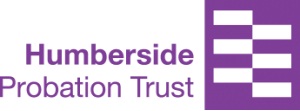
Electronic tagging is a form of surveillance that uses an electronic device affixed to a person.
OASys is the abbreviated term for the Offender Assessment System, used in England and Wales by Her Majesty's Prison Service and the National Probation Service from 2002 to measure the risks and needs of criminal offenders under their supervision.

The Probation Service for England and Wales is a statutory criminal justice service, mainly responsible for the supervision of offenders in the community and the provision of reports to the criminal courts to assist them in their sentencing duties. It was established in its current form by the Criminal Justice and Court Services Act in April 2001, but has existed since 1907 as a set of area-based services interacting at arm's length with central government.
In the United Kingdom, the Violent and Sex Offender Register (ViSOR) is a database of records of those required to register with the police under the Sexual Offences Act 2003, those jailed for more than 12 months for violent offences, and those thought to be at risk of offending. In response to a Freedom of Information request in 2009, for example, Greater Manchester Police reported that of 16 people in their area placed on ViSOR since 2007 on their initiative and not as a result of a relevant conviction, four (25%) had clean criminal records.

A probation and parole officer is an official appointed to investigate, report on, and supervise the conduct of convicted offenders on probation or those released from incarceration to community supervision such as parole. Most probation and parole officers are employed by the government of the jurisdiction in which they operate, although some are employed by private companies that provide contracted services to the government.
The Drug Interventions Programme is a key part of the United Kingdom's strategy for tackling drug abuse. It aims to engage drug-misusing offenders involved in the Criminal Justice system in formal addiction treatment and other support, thereby reducing drug-related harm and reducing offending behaviour. Introduced in 2003, it formed a part of both of New Labour's '10 year' drug strategies. In their 2010 Drug Strategy, the Conservative / Liberal Democrat coalition state their continued intention to support DIP.
There has been a regional offender manager (ROM) for each of the nine English regions and Wales since 2004/05, when the National Offender Management Service within the Home Office was created to oversee correctional services in England and Wales.
Rodney Emrys Morgan is Professor Emeritus, University of Bristol and Visiting Professor at the University of Sussex. He is the former chair of the Youth Justice Board for England and Wales (2004-7) and prior to that was HM Chief Inspector of Probation for England and Wales (2001-4).

The Parole Board for England and Wales was established in 1968 under the Criminal Justice Act 1967. It became an independent executive non-departmental public body (NDPB) on 1 July 1996 under the Criminal Justice and Public Order Act 1994. The Parole Board is governed by the Parole Board Rules 2016 made by Parliament under the Criminal Justice Act 2003. Parole Board members are appointed by the Secretary of State for Justice, but are required to take judicial decisions independent of Government. The Parole Board's role is to make risk assessments about prisoners and to make a binding direction to Government about whether prisoners are released into the community on parole. The Parole Board must also give advice to Government when asked, most often about whether offenders are ready to be moved to open prisons from the closed prison estate.
A sex offender registry is a system in various countries designed to allow government authorities to keep track of the activities of sex offenders, including those who have completed their criminal sentences. In some jurisdictions, registration is accompanied by residential address notification requirements. In many jurisdictions, registered sex offenders are subject to additional restrictions, including on housing. Those on parole or probation may be subject to restrictions that do not apply to other parolees or probationers. Sometimes, these include restrictions on being in the presence of underage persons, living in proximity to a school or day care center, owning toys or items targeted towards children, or using the Internet. Sex offender registries exist in many English-speaking countries, including Australia, Canada, New Zealand, the United States, Trinidad and Tobago, Jamaica, South Africa, the United Kingdom, Israel, and the Republic of Ireland. The United States is the only country with a registry that is publicly accessible; all other countries in the English-speaking world have sex offender registries only accessible by law enforcement.
Indefinite imprisonment or indeterminate imprisonment is the imposition of a sentence by imprisonment with no definite period of time set during sentencing. It was imposed by certain nations in the past, before the drafting of the United Nations Convention against Torture (CAT). The length of an indefinite imprisonment was determined during imprisonment based on the inmate's conduct. The inmate could have been returned to society or be kept in prison for life.
Lancashire Probation Trust is a criminal justice agency responsible for punishing and rehabilitating offenders in Lancashire, England.
The Probation Board for Northern Ireland (PBNI) is a non-departmental public body responsible to the Northern Ireland Department of Justice for the Probation Service in Northern Ireland. It is part of the Public Protection Arrangements Northern Ireland (PPANI).
In the United Kingdom, Approved Premises (AP), formerly known as probation or bail hostels, are residential units which house ex-offenders in the community. They are recognised under the Offender Management Act 2007. There are one hundred such hostels in England and Wales, and a further six in Northern Ireland. Fourteen of the APs in England and Wales were banned from housing child sex offenders in 2006 following a media campaign, which has led to some criticism.
Circles of Support and Accountability (CoSA) are groups of volunteers with professional supervision to support sex offenders as they reintegrate into society after their release from incarceration. Evaluations of CoSA indicate that participation in a CoSA can result in statistically significant reductions in repeat sexual offenses in 70% of cases, relative to what would be predicted by risk assessment or matched comparison subjects. CoSA projects exist throughout Canada, the United Kingdom, and some regions of the United States.

Humberside Probation Trust was a criminal justice agency which protects the public by ensuring offenders are punished and rehabilitated. Humberside was one of 35 probation trusts within England and Wales that were part of the National Offender Management Service (NOMS) and a department of the Ministry of Justice.
The New Zealand Probation Service is a branch or service of the New Zealand Corrections Department. Established in 1886, its role is to manage offenders sentenced to community based sentences such as home detention, community detention and intensive supervision. The Service also manages prisoners in the community who have been released on parole and offenders on release conditions at the end of their prison sentence. According to Corrections website, in 2014 the Service was looking after approximately 30,000 offenders in the community. The Probation Officer's role is described as "work(ing) with people on probation to motivate them to make changes in their lives. This may include attending programmes to address violence, alcohol and drug abuse or driving offences."

The Parole Board for Scotland is a tribunal non-departmental public body in Scotland first established in 1967, with responsibility for parole decisions. Its decision making and operating are independent of the Scottish Government, and many of its decisions are binding on Scottish Ministers. The Parole Board has statutory powers to:
Joseph McCann is an English-born Scottish–Irish serial rapist. In April and May 2019, McCann committed sexual sheltered by a "support network" across the country. For these crimes, he was tried at the Old Bailey and, on 6 December, convicted of 37 offences. Three days later, he was given 33 life sentences.
In March 2017, Nicholas Churton was murdered at his home in Wrexham by Jordan James Lee Davidson. The case resulted in three Independent Police Complaints Commission investigations. Churton, aged 67, lived alone at Crescent Close, Wrexham. He was a retired restaurateur who had run restaurants in Rossett, Wrexham and Tarporley, Cheshire. North Wales Police described him as vulnerable and partly disabled.





